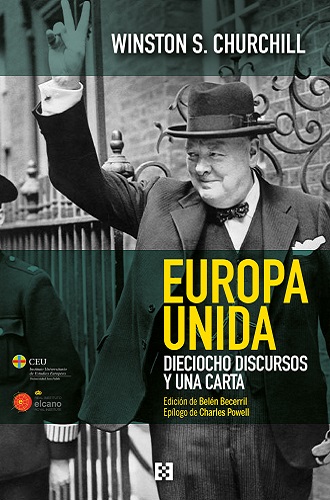WINSTON CHURCHILL. "EUROPA UNIDA. DIECIOCHO DISCURSOS Y UNA CARTA"
The Royal University Institute for European Studies continues to publish works for the collection 'Raíces de Europa'. This time, the protagonist is Winston Churchill, an English politician who led the United Kingdom during the Second World War. Thus, with the publication of his book "Europa Unida. Dieciocho discursos y una carta", the Briton joins the list of the Founding Fathers of European Integration, as well as other key players in this process such as Otto of Hasburg and Václav Havel.
On the occasion of the presentation of the play, the Royal Institute organised an activity entitled 'Brexit, a conversation on the United Kingdom's European identity', in which Charles Powell, Director of the Real Instituto Elcano, Simon Manley, British Ambassador to Spain, and José María Beneyto and Belén Becerril from the Royal Institute took part.
Similarly, our deputy director Belén Becerril wrote an Open Tribune in the ABC newspaper where she dealt with the figure of Churchill and spoke about the recently held British referendum.
Finally, the book "Europa Unida. Dieciocho discursos y una carta" is a collection of speeches made by Churchill between 1945 and 1957 on Europe. All of them are written in neat and brilliant prose, since, as the introductory study indicates, if there was one thing this Nobel Laureate in Literature took great care of, it was the texts of his speeches. Also included is a revealing final letter written by Churchill at the time of the United Kingdom's application to join the European Communities.

The director of the Royal Institute Elcano, Charles Powell, wrote the epilogue in which he comments that "throughout his long political life our protagonist had the courage and intelligence to ask himself, with surprising intellectual honesty, some of the questions that continue to be asked today not only about the role of the United Kingdom in Europe, but also about the very nature of the European project". Belén Becerril was the author of the introductory study.
All the information you need is in this link.